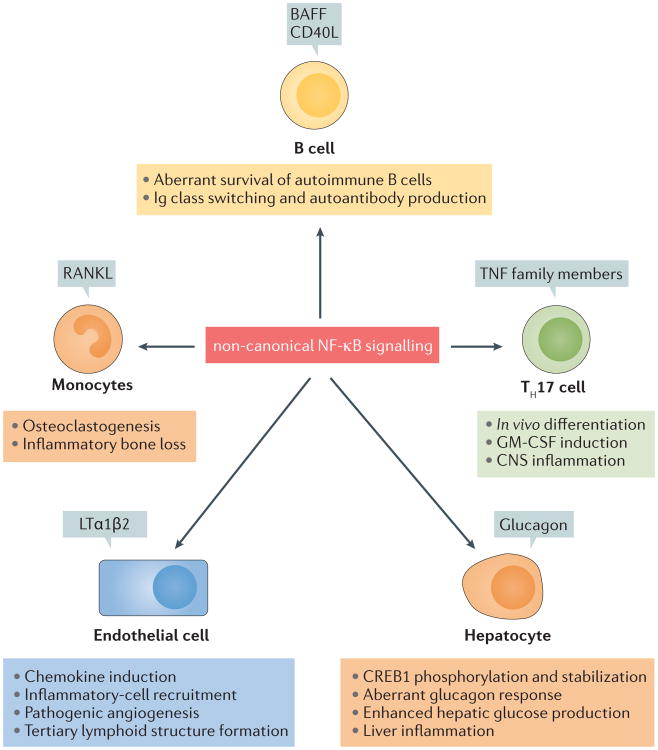Figure 5. The non-canonical NF-κB pathway regulates inflammation in different cell types.
Under physiological conditions, non-canonical nuclear factor-κB (NF-κB) signalling mediates the survival and homeostasis of B cells, the generation and effector function of T helper 17 (TH17) cells, the differentiation of osteoclasts from monocytes, chemokine production in endothelial cells, and glucagon responses in hepatocytes25,60,62,76,77,126,139,161. These cellular events become pathogenic in situations in which the non-canonical NF-κB pathway is aberrantly activated owing to the uncontrolled production of its inducing agents or genetic deficiencies in its negative regulators. Aberrant B cell survival renders self-reactive B cells resistant to negative selection, contributing to the accumulation of autoantibodies associated with inflammatory diseases147. Autoimmune TH17 cells mediate inflammation in the central nervous system (CNS) and other tissues. Excessive and chronic production of chemokines by endothelial cells promotes the recruitment of inflammatory cells and the formation of tertiary lymphoid structures in tissue-specific inflammation138,139. Aberrant osteoclast generation is a pathological mechanism of inflammatory bone loss, and aberrant glucagon responses are associated with metabolic diseases77,161. BAFF, B cell activating factor; CD40L, CD40 ligand; CREB1, cAMP-responsive element-binding protein; GM-CSF, granulocyte–macrophage colony-stimulating factor; Ig, immunoglobulin; LTα 1β2, lymphotoxin α 1 β2; RANKL, RANK, receptor activator for NF- κB ligand; TNF, tumour necrosis factor.

